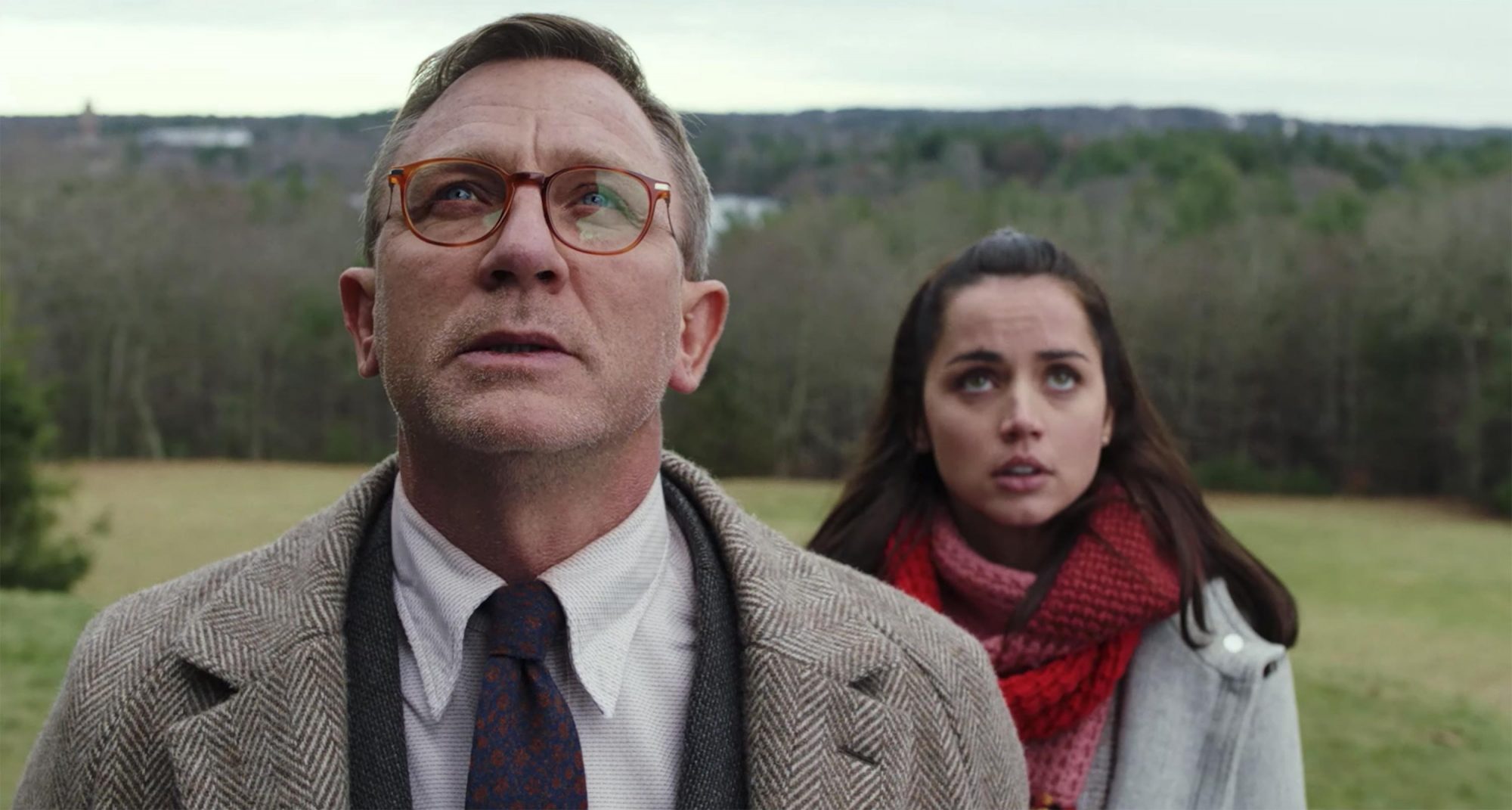Here, the author will delve into the charming and cosy world of Agatha Christie’s world of murder mysteries and the world of adaptations they have inspired over the years.
Ah, Agatha Christie – the queen of crime, the mistress of mystery, and the unrivaled mastermind behind some of the most mind-boggling whodunits in literary history. Her works have not only enthralled readers for generations but have also served as a treasure trove for filmmakers and TV producers seeking to bring her ingenious tales to life on the screen. In this delightful journey through the world of Agatha Christie adaptations, we’ll explore how her intricate plots, memorable characters, and twisted sense of humor have transcended the pages of her novels to captivate audiences in the visual medium. Grab your magnifying glass, folks; we’re about to embark on an adventure!
- Chapter 1: The Allure of Agatha Christie
- Chapter 2: The Agatha Christie Screen Universe
- Chapter 3: Iconic Adaptations
- Chapter 4: More Recent (and Modern) Adaptations
- Chapter 5: The Art of Adaptation
- Chapter 6: The Agatha Christie Legacy
- Conclusion: In Search of the Perfect Adaptation
- Explore further: Must-Read Indian Crime-Thriller Novels You Should Read
Chapter 1: The Allure of Agatha Christie
Before we dive into the screen adaptations, let’s take a moment to appreciate the enchanting world that Agatha Christie created. Christie’s writing is a curious blend of British charm, psychological intrigue, and a twisted sense of humor that’s more devilish than a Cheshire cat’s grin. Her detectives, Hercule Poirot, and Miss Marple, are iconic figures in the world of crime fiction, and her novels are a kaleidoscope of murder, deception, and a generous helping of red herrings.
But what makes Christie’s work so universally appealing? It’s the fact that she plays a clever game with her readers. She lays out the clues, but when you think you’ve cracked the case, she delivers a twist that leaves you feeling like you’ve fallen down the rabbit hole into Wonderland. Her novels are intellectual puzzles that challenge the readers to put on their thinking caps and unravel the intricacies of her devious plots. While you’re scratching your head in puzzlement, Christie’s wry humour sneaks in, making you chuckle even as you try to solve a murder most foul.
Chapter 2: The Agatha Christie Screen Universe
Now, let’s shift our attention to the world of Agatha Christie’s adaptations. Her stories have graced the silver and small screens for decades, and the list of adaptations is as long and winding as the corridors of an old English manor. There’s something utterly fascinating about watching Christie’s intricate narratives unfold visually, and her characters come to life in ways that add depth and nuance to the beloved stories.
Hercule Poirot and the Marvellous Moustache: One cannot talk about Agatha Christie adaptations without mentioning the meticulous Belgian detective Hercule Poirot. Whether you picture David Suchet’s iconic portrayal or Kenneth Branagh’s more recent take, Poirot’s mustache is as much a character as the detective himself. It’s a marvel of grooming and a source of endless amusement.

- The Poirot Chronicles: David Suchet’s embodiment of Hercule Poirot in the long-running TV series Agatha Christie’s Poirot is nothing short of legendary. With his meticulous attention to detail, exquisite taste, and ever-so-slightly exaggerated Belgian accent, Suchet’s Poirot is a joy to behold. The show spans over two decades and covers almost every Poirot novel, bringing Christie’s stories to life with unparalleled flair.
- Branagh’s Bolder Poirot: In the more recent cinematic adaptation of Murder on the Orient Express, Kenneth Branagh takes on the role of Poirot. With his twirled mustache and a flair for the dramatic, Branagh adds his own unique touch to the character. His Poirot is a little more action-hero than Christie’s version, but it’s an entertaining interpretation nonetheless.
Miss Marple and the Art of Observation: While Poirot might be the more famous of Christie’s detectives, Miss Marple holds her own as a shrewd observer of human nature and a solver of rural mysteries.
- Joan Hickson’s Marple: Joan Hickson’s portrayal of Miss Marple is often considered to be the definitive one. Her quiet, unassuming demeanor hides a razor-sharp mind, making her an exceptional detective. In the TV series “Miss Marple,” Hickson perfectly captures the essence of Christie’s character, knitting needles and all.
- Geraldine McEwan and Julia McKenzie: Other actresses, such as Geraldine McEwan and Julia McKenzie, have also taken on the role of Miss Marple in different adaptations. Each brings their own charm to the character, proving that there’s more than one way to be a brilliant amateur sleuth.
Chapter 3: Iconic Adaptations
While there are countless Agatha Christie adaptations, some have achieved legendary status for their faithfulness to the source material and the ability to capture the essence of Christie’s world.
- Murder on the Orient Express (1974): Sidney Lumet’s adaptation of this classic Poirot tale is a masterclass in building tension and maintaining the mystery until the very end. With an all-star cast that includes Albert Finney as Poirot, this film is a must-watch.
- Death on the Nile (1978): This adaptation, also directed by Sidney Lumet, features Peter Ustinov as Poirot and Maggie Smith as one of the suspects. The film beautifully captures the glamour and intrigue of Christie’s world as the mystery unfolds on the serene waters of the Nile.
- And Then There Were None (2015): This three-part BBC adaptation of Christie’s masterpiece is a chilling and faithful rendition of the novel. The isolated island setting and the gradual unraveling of the characters’ secrets create an atmosphere of unease that is utterly captivating.
Chapter 4: More Recent (and Modern) Adaptations
Agatha Christie’s appeal hasn’t waned with time, and modern adaptations continue to bring her stories to new audiences while adding unique twists.
- The ABC Murders (2018): This Amazon Prime series puts John Malkovich in the shoes of Hercule Poirot, offering a darker and more psychologically intense portrayal of the detective. The series takes a bold approach to the character, and while it may not be to everyone’s taste, it’s a fascinating modern take on the iconic detective.
- Knives Out (2019): While not a direct adaptation of any Christie novel, Rian Johnson’s Knives Out (and the follow-up Glass Onion) is a loving homage to the classic whodunit genre. With a stellar ensemble cast and a plot full of twists and turns, it’s a modern masterpiece that brings forth an enduring appeal to Christie’s storytelling.
- The Pale Horse (2020): This two-part BBC adaptation delves into the world of witchcraft and superstition, a departure from Christie’s usual mysteries. It’s a testament to her versatility as a writer, and the adaptation manages to maintain a sense of eerie intrigue throughout.

Chapter 5: The Art of Adaptation
Adapting Agatha Christie’s intricate plots to the screen is no small feat. It’s like trying to fit an elephant into a phone booth – challenging. But if done right, it can be incredibly rewarding. The key to successful adaptation lies in capturing the essence of Christie’s writing while adding the visual elements that make her stories come alive.
- The Challenge of Clues: Christie’s mysteries are often a tapestry of subtle clues, misdirection, and unreliable narrators. Translating these elements to the screen requires a keen directorial eye. The challenge lies in conveying the essential information without making it too obvious or convoluted.
- Pacing is Paramount: Christie’s novels often have a slow, deliberate buildup, followed by a frenetic climax. Adaptations need to balance this pacing to keep the audience engaged without giving away too much too soon.
- Character Nuance: Agatha Christie’s characters are far from one-dimensional. They have layers, secrets, and quirks that make them intriguing. A successful adaptation captures these nuances and brings them to life on screen.
- The Case of the Flawed Heroes: One of the most appealing aspects of Christie’s characters is that they are not flawless heroes. Poirot can be insufferably pompous, and Miss Marple can come across as meddlesome. Adapting these character flaws while maintaining their charm is a delicate balancing act.
- The Whodunit Dilemma: In Christie’s novels, the revealing of the murderer is a pivotal moment. The challenge for adaptations is to keep the suspense intact while adding a visual dimension to the revelation.
- The Gathering of Suspects: Christie often employs the classic trope of gathering all the suspects in one room for the big reveal. Seeing this play out on screen, with each character’s reaction carefully crafted, is a joy for fans of the genre.
Also Read: 10 Facts You Probably Didn’t Know About “Knives Out” (2019)
Chapter 6: The Agatha Christie Legacy
Agatha Christie’s legacy is not limited to her novels and their adaptations. Her influence on the mystery genre, with her unique blend of wit and suspense, continues to inspire writers, filmmakers, and readers alike.
- Raising the Mystery Genre Bar: Christie’s works have set the bar high for the mystery genre. Her ability to craft intricate puzzles and create memorable characters has influenced countless authors who seek to emulate her style.
- The Whodunit Formula: The classic whodunit formula, with its emphasis on clues, suspects, and a brilliant detective, owes much to Christie’s work. Her novels have provided a blueprint for many writers who followed while adding unique twists and innovations.
- Cutting across Time and Generations: Agatha Christie’s stories are timeless. They can be enjoyed by readers of all ages, with an enduring quality that transcends generations. Her novels continue to be bestsellers, and her adaptations find new audiences year after year.
Conclusion: In Search of the Perfect Adaptation
As we wrap up our journey through the world of Agatha Christie adaptations, it’s clear that there is no one-size-fits-all approach to bringing her stories to the screen. Each adaptation adds its own flavour and interpretation, and that’s part of what makes the Christie universe so endlessly fascinating. From the meticulous Poirot to the astute Miss Marple, from the grandeur of the Orient Express to the isolation of a remote island. In the process of adaptation, her stories gain new dimensions and life.
So, dear reader, whether you’re a seasoned Christie aficionado or a newcomer to the world of whodunits, there’s always a Christie adaptation waiting for you. Grab your popcorn, settle into your favorite armchair, and let the enigmatic world of Agatha Christie transport you to a realm of intrigue, suspense, and wits. Immerse yourself in there, use your intelligence and deduction skills, try to solve the puzzle, and most importantly, enjoy the journey. After all, our beloved Poirot did say, “If the little grey cells are not exercised, they grow the rust.“

